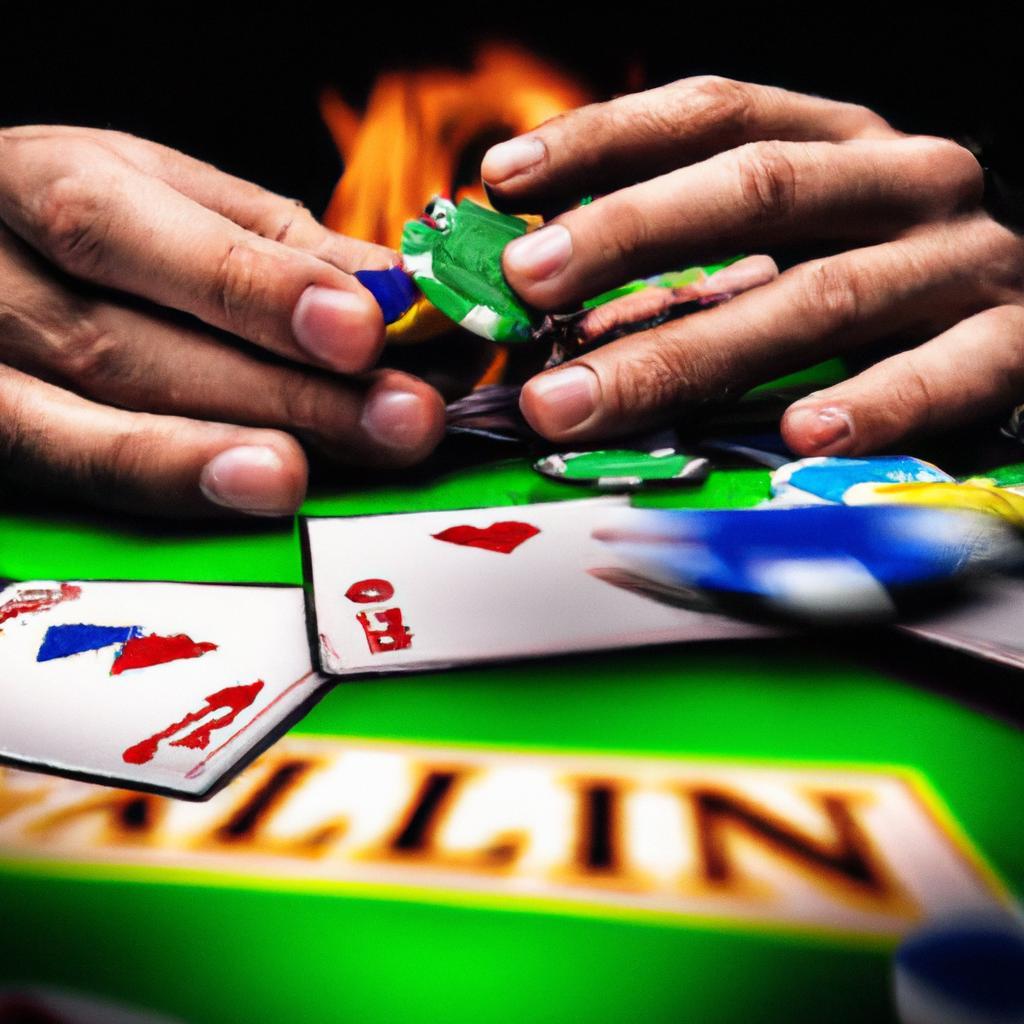In the labyrinth of human experience, few pursuits blur the lines between excitement and peril quite like gambling. What begins as a simple roll of the dice or a spin of the wheel can quickly escalate into a consuming obsession, casting long shadows over lives and relationships. Gambling addiction, often lurking unnoticed beneath the bright lights of casinos and the digital allure of online platforms,
is a silent epidemic that grips individuals from all walks of life. This article explores the intricate web of emotions and societal influences that contribute to this compelling yet dangerous habit, illuminating the signs, consequences, and pathways to recovery. In understanding gambling addiction, we uncover not only its complexities but also the resilience of those who strive to reclaim their lives from its grasp.
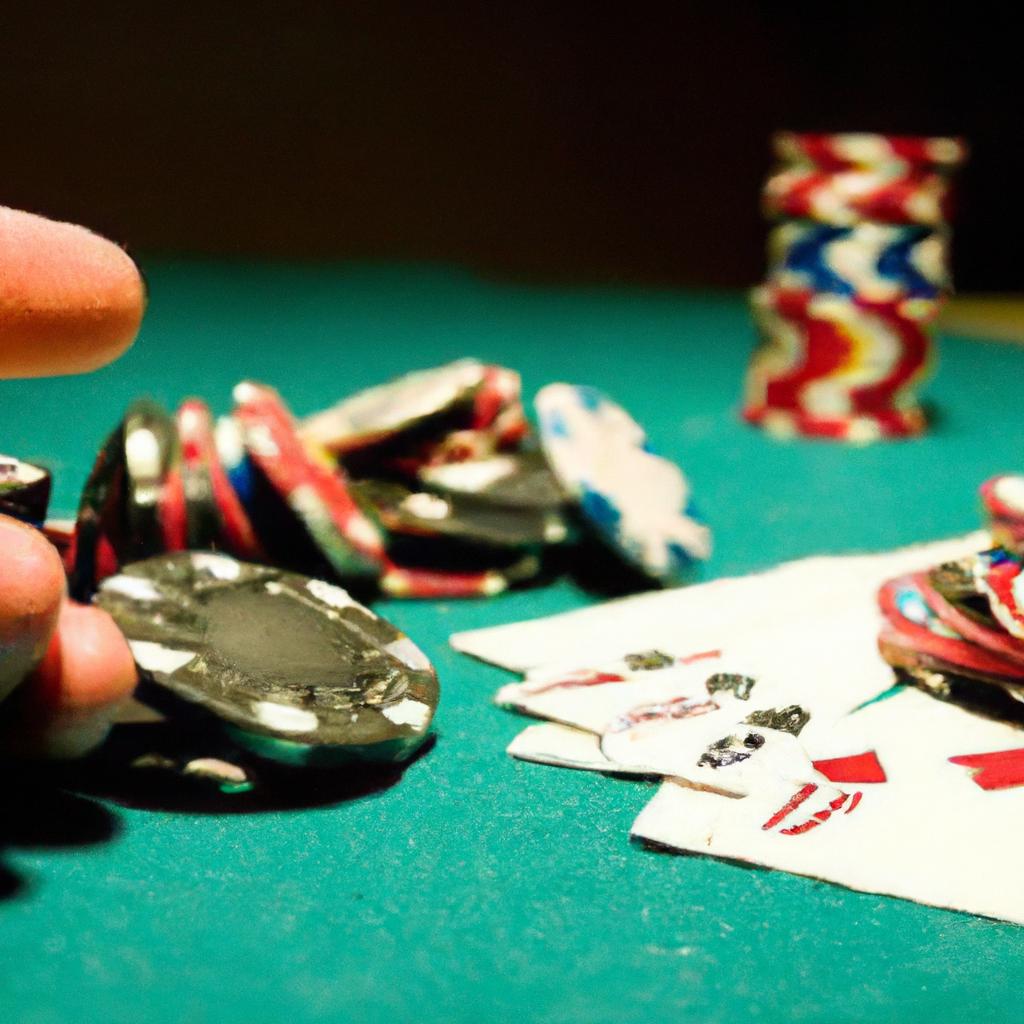
Understanding the Psychological Triggers of Gambling Addiction
Gambling addiction often stems from a complex interplay of psychological triggers that can entice individuals into a destructive cycle. Understanding these triggers is essential for addressing and preventing the addiction. Key factors include:
- Escapism: Many individuals turn to gambling as a way to escape from stressors or life challenges, seeking temporary relief from emotional turmoil.
- Reinforcement: The thrill of winning, coupled with the potential for significant financial gain, can create a powerful reinforcement loop that encourages further gambling.
- Social Influence: Engaging in gambling activities with friends or family can lead to a sense of belonging, making it harder to recognize when gambling shifts from a recreational activity to an addiction.
Furthermore, cognitive distortions play a crucial role in perpetuating gambling addiction. Individuals may develop irrational beliefs, such as the idea that they are “due” for a win or that they possess a unique skill that gives them an edge. To illustrate these cognitive distortions, consider the following table showing common misconceptions held by those struggling with gambling addiction:
| Misconception | Description |
|---|---|
| The Gambler’s Fallacy | Believing that past losses guarantee future wins. |
| Skill Over Luck | Overestimating personal abilities in games of chance. |
| Chasing Losses | Thinking that continued gambling can recover lost money. |
Addressing these psychological triggers and misunderstandings is crucial in developing effective treatment strategies. For resources and support, visit www.betreward.com.
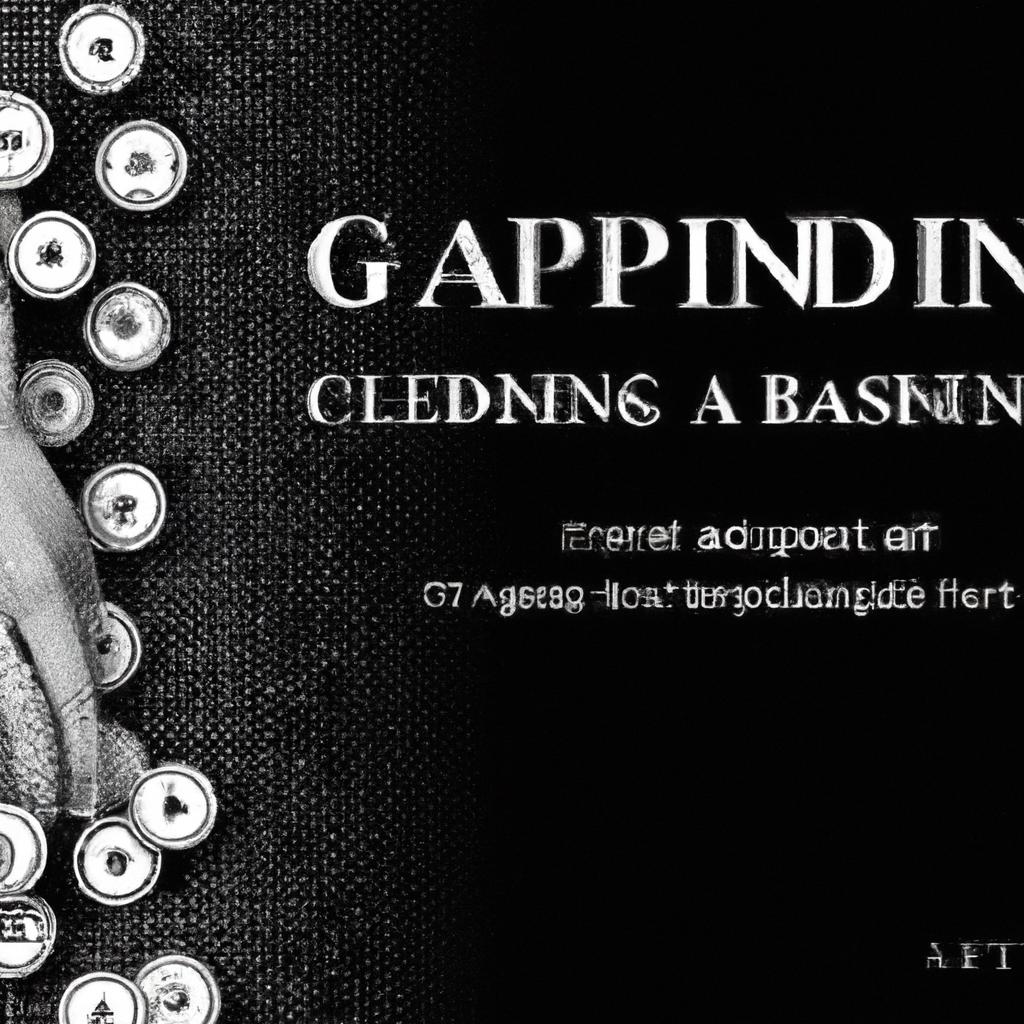
Recognizing the Warning Signs: When Fun Becomes a Problem
It’s essential to stay vigilant about the transition from enjoyment to compulsion when it comes to gambling. The initial thrill of a win can quickly morph into a desperate pursuit of that high, leading players to prioritize gambling over responsibilities and relationships. Recognizing this shift can prevent a harmless pastime from spiraling into an all-consuming addiction. Some common indicators to watch for include:
- Increased Time Spent: Spending more hours on gambling activities, often at the expense of social interactions or work commitments.
- Financial Irresponsibility: Relying on loans or credit to fund gambling habits, leading to escalating debts.
- Neglecting Other Interests: Losing interest in hobbies or activities that once brought joy, focusing solely on gambling.
- Emotional Turmoil: Experiencing anxiety or stress related to gambling, such as feelings of guilt or remorse after playing.
It’s important to establish boundaries and acknowledge these warning signs early on to mitigate risks. Tracking gambling habits can help identify problematic behaviors. Consider the following table as a quick self-assessment tool:
| Frequency of Play | Emotional Impact | Financial Behavior |
|---|---|---|
| Occasional | Neutral | Under Control |
| Weekly | Stressed | Borrowing Money |
| Daily | Anxious / Depressed | In Debt |
If you or someone you know is experiencing any of these challenges, reaching out for support can be a life-changing step. Resources and help are available at www.betreward.com, where you can find guidance on managing gambling habits effectively.
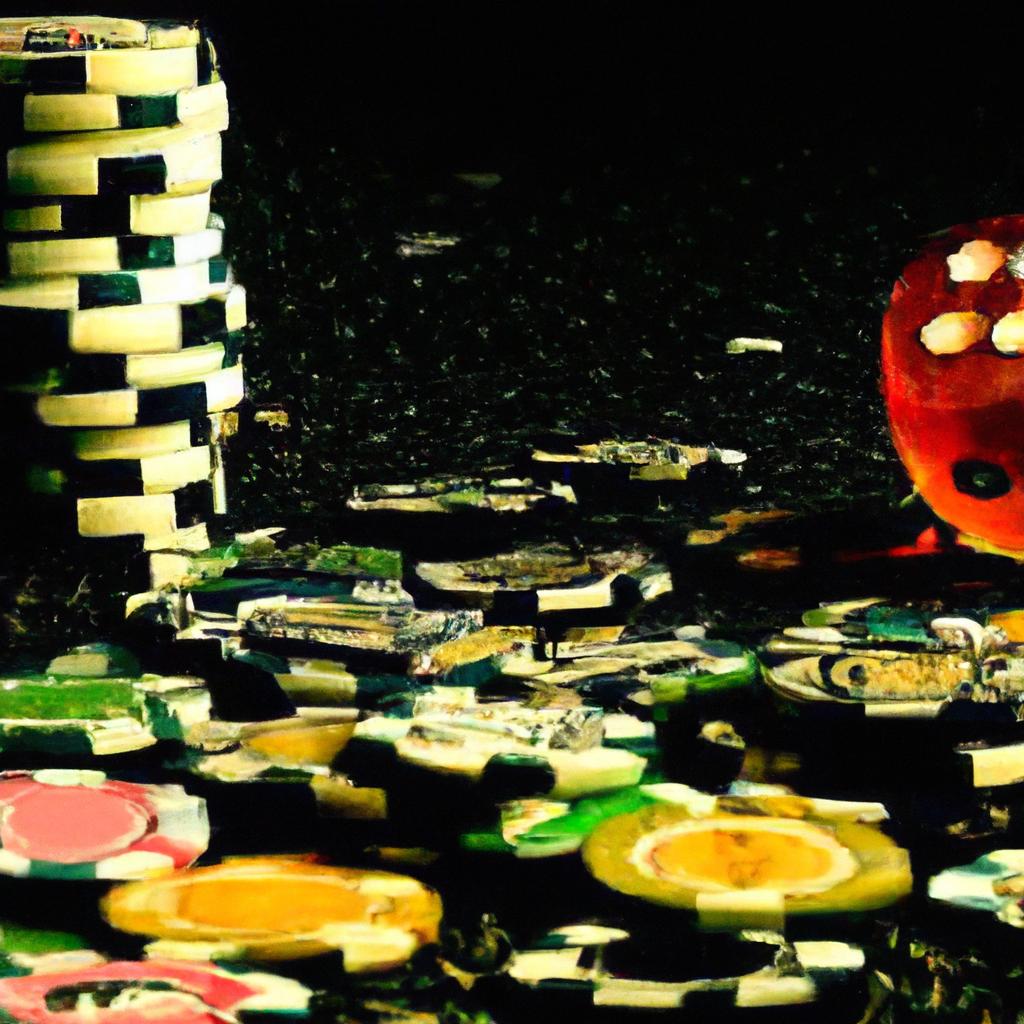
Effective Strategies for Overcoming Gambling Addiction
Overcoming gambling addiction requires a multifaceted approach that addresses both the psychological and behavioral aspects of the disorder. One highly effective strategy is to engage in cognitive-behavioral therapy (CBT), which helps individuals identify and change negative thought patterns that contribute to compulsive gambling. This therapy can empower individuals to develop healthier coping mechanisms and build resilience against triggers. Additionally, establishing a solid support system from friends, family, or support groups like Gamblers Anonymous can provide the encouragement and accountability needed to stay on the path to recovery.
Incorporating lifestyle changes can also significantly enhance recovery efforts. This might include:
- Developing new hobbies to fill time previously spent on gambling, such as sports, art, or volunteering.
- Setting financial boundaries by limiting access to funds that could be used for gambling.
- Practicing mindfulness and meditation to reduce stress and improve emotional regulation.
Furthermore, collaborating with financial advisors can help individuals regain control of their finances and plan for a more stable future. One resource worth exploring is BetReward, which offers tools and insights on responsible gaming and financial management.
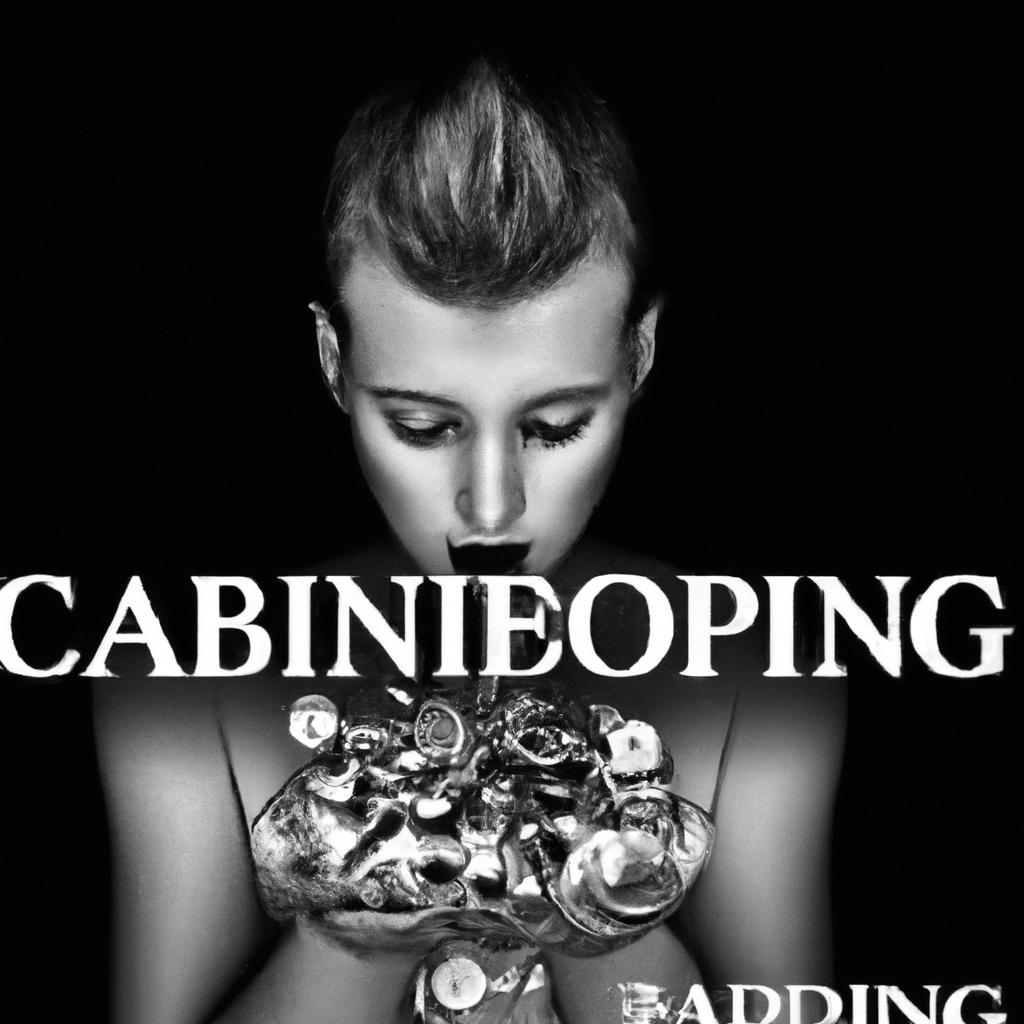
Building a Support System: The Role of Community and Counseling
Establishing a robust support system is crucial for individuals grappling with gambling addiction. Engaging with a community that understands the nuances of this issue can provide not only empathy but also practical guidance. Support groups offer a judgment-free environment where individuals can share their experiences and challenges. This collective nurturance can take various forms:
- Peer Support Groups: Organizations like Gamblers Anonymous allow members to confide in one another.
- Online Forums: Digital platforms can connect those who prefer virtual anonymity while seeking help.
- Family Support Sessions: Counseling that involves loved ones can promote understanding and healing.
Furthermore, professional counseling plays an integral role in treating gambling addiction. Licensed therapists can provide tailored strategies that address the underlying psychological aspects of addiction, including behavioral triggers and emotional regulation. Counseling can be structured in various ways:
| Type of Counseling | Focus Area |
|---|---|
| Cognitive Behavioral Therapy (CBT) | Identifying and changing negative thought patterns. |
| Dialectical Behavior Therapy (DBT) | Developing skills for emotional regulation and mindfulness. |
| Motivational Interviewing | Enhancing an individual’s motivation to change. |
The combination of community support and professional counseling empowers individuals to reclaim control over their lives, paving the way for a healthier future. For more resources and information, you can visit www.betreward.com.
Wrapping Up
As we reach the end of our exploration into the multifaceted world of gambling addiction, it is crucial to acknowledge the delicate balance between chance and choice. While the thrill of the game may tempt many, the shadows of compulsion can loom large, affecting not only the individual but also their families and communities. Understanding the intricacies of this addiction is the first step toward breaking the cycle, fostering awareness, and encouraging open conversations.
Just as the roll of the dice can dictate fortunes and misfortunes alike, it is our collective responsibility to ensure that help and hope are always within reach for those who find themselves ensnared by this challenge. If you or someone you know is grappling with gambling addiction, remember that seeking support is a sign of strength, not weakness. Together, we can illuminate pathways to recovery, transforming lives from the gamble of despair to the promise of brighter tomorrows.
